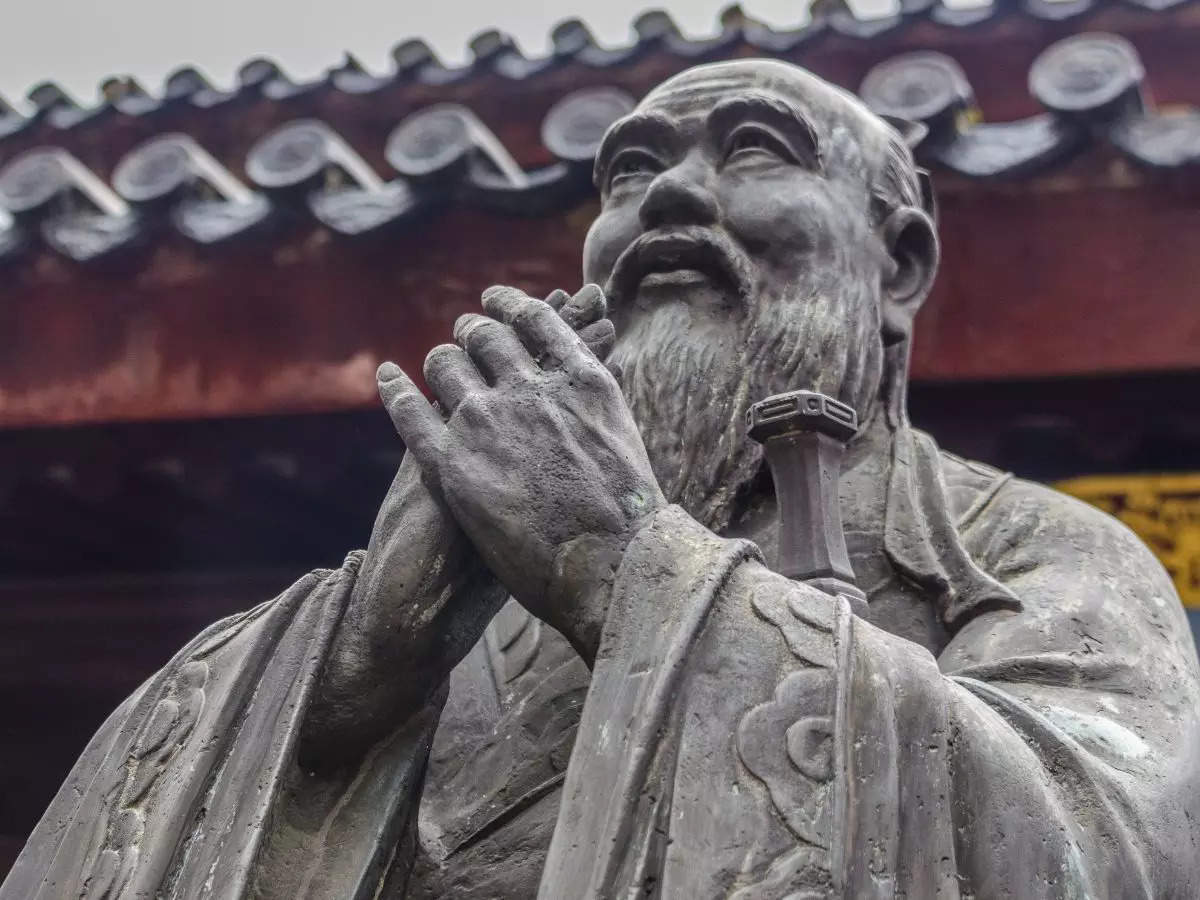Confucius: Early Life
Confucius was born on 28 September 551 Before Common Era (BCE) in Zou (modern Shandong) in modest circumstances. He lost his father, Kong He, at the age of three and was raised by his mother, Yan Zhengzai in poverty. Despite financial constraints, Confucius nurtured a desire to learn from an early age. He received his education from schools for commoners and learnt Six Arts.
Confucius married Lady Qiguan at the age of 19, and the couple had three children one son, Kong Li, and two daughters, one of whom died young. Despite his family obligations, Confucius worked in various government roles, starting with humble jobs as a keeper of granaries and livestock. He later rose to more significant positions such as minister of works and minister of crime in the state of Lu, where his ethical teachings began to take shape.
Confucius’ mother passed away when he was 23 years old. After the death of his mother, Confucius observed three years of mourning, dedicating this period to deep philosophical reflection, which solidified his moral reformist views.
Confucius: His Teachings and Philosophy
Confucius advocated the development of a good moral character through the virtue of ren (humanity), which he believed is essential to accomplish cosmic harmony. His teachings stated that this character development is equally essential for the rulers, whose moral perfection will lead to a peaceful and harmonious reign.
Filial piety or devotion to family were fundamental pillars of Confucius’ teachings. He enlightened his disciples by guiding them that this devotion should include ancestor worship family, values, and respect for parental authority, creating a social structure where family values underpin the broader society. Confucius also promoted education as a means to develop virtuous character, believing that people were inherently good but often strayed from proper conduct.
His teachings also emphasised fitting individuals for honourable living in this life, focussing on moral integrity rather than religious doctrine. Confucius attracted a growing circle of disciples, many of whom were respected figures in public life.
Confucius’s social teachings stemmed from benevolence and altruism. He preached to his disciples to treat others as they would want to be treated. Rituals played a vital role in cultivating this respect and building community bonds.
Education was fundamental to Confucius’s philosophy. He considered education to be a powerful tool to master oneself and contribute to society. His teaching style comprised asking questions from pupils and motivating them to delve deeper into the topic rather than merely imparting knowledge.
Confucius championed genuine justice and compassion from both the ruler and the ruled. He believed that only a ruler who acted justly would retain the Mandate of Heaven, securing their right to govern.
Remarkably, in a time marked by violence, Confucius rejected the idea that rulers should rely on force or threats to maintain control. He argued, “Your duty is to govern, not to kill.” Similar to social relationships between family members, Confucius believed rulers should uphold rituals to secure their authority. These included honouring ancestors with sacrifices, exchanging gifts among the nobility, and practicing formal etiquette like bowing, which strengthened bonds of obligation and respect.
However, his ideas were not universally accepted during his lifetime. Despite traveling through various states to share his teachings, Confucius faced rejection in several regions.
Confucius’ Later Years
According to historical texts of Chinese literature like the Zuozhuan and Shiji, Confucius returned to his native state of Lu at the age of 68, following an invitation from Ji Kangzi, the chief minister of Lu at that time. During his final years, he dedicated himself to teaching, amassing around 3,000 pupils, including 72 or 77 accomplished disciples proficient in the Six Arts. Confucius also focused on preserving ancient wisdom, editing the Five Classics.
Even in his later years, Confucius served as an advisor to government officials, addressing matters of governance and crime. His teachings on the significance of virtuous leadership and the role of education in fostering a just society gained prominence. After Confucius’s death, his disciples preserved and expanded upon his teachings. Mencius and Xunzi, two of the most notable followers, played key roles in advancing Confucian thought.





